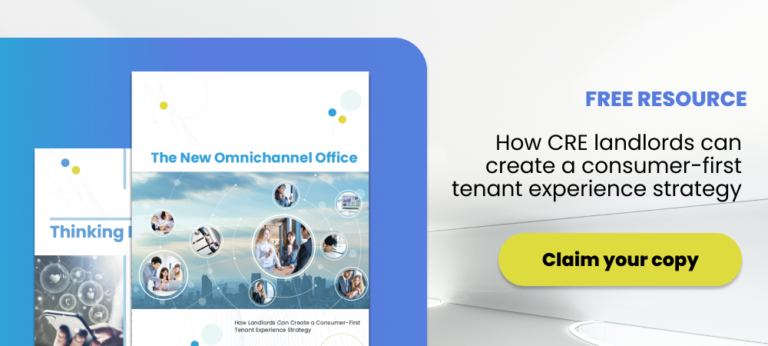Smart technology in buildings has been one of the biggest trends in construction since 2015, and it continues to gain strong momentum as the office sector enters a new era of technological innovation. What is a smart building, you may ask? In simple terms, the smart building definition is a building integrated with advanced technologies. These systems work together to automatic building processes, and share information with each other throughout a building’s framework.
However, smart building features are not just for showing off — each smart system has a specific and unique purpose. Such features work together to make offices operate better, safer, and healthier for building occupants. We’ll go over smart building components, the types of smart buildings, and what makes a smart building a “smart” choice in the first place.
Smart Building Examples
Smart buildings are no longer a sci-fi story, as these supercomputers of the future are already making waves around the world. Let’s take a look at three of the greatest examples of structures built and/or operated by smart building technology companies.
- Duke Energy Center, Charlotte NC, USA: This resourceful 51-story tower in downtown Charlotte is renowned for its smart and green capabilities. It has a rooftop garden that utilizes water runoff and helps regulate heat. Even the solar-powered blinds are intuitive with the sunlight, and move with the angle of the sun.
- Capital Tower, Singapore: The smart building capabilities of the Capital Tower helped it win the Green Mark Platinum Award. Its air conditioning system recovers cool air to maintain the longevity of the AC unit, and the windows are double-layered to optimize energy efficiency.
- Burj Khalifa, Dubai, UAE: Burj Khalifa is the tallest building in the world, but did you know that it is also a smart building? Its smart building IoT solutions automatically regulate common maintenance issues and improve the air quality, temperature, and lighting for its occupants.
Types of Smart Building Technologies for Your Office Portfolio
HqO’s growing Marketplace of best-in-class technology partners can help aggregate numerous smart technologies for your office building. Through its operating system, landlords and property teams can activate partners and features to meet any building’s needs. HqOS™ smart building technology examples fall under the following categories:
- Access Control: Security is among the most notable smart building IoT solutions. Through access control capabilities, owners can enable tenants to gain access to their office buildings with just the tap of a phone.
- Emergency Communications: Another critical smart building solution is the ability to communicate critical safety information to building occupants in a quick and efficient manner.
- Order Ahead: A smart-enabled technology platform can increase safety and convenience for your tenants, such as integrating with local retailers to allow them to place orders ahead and reduce friction.
- Resource Booking: Smart building technologies have also made resource booking even more seamless. Smart building sensors coordinate with your existing software to assist in more efficient room booking management, from conference rooms to event spaces and everything in between, making organizing your day a seamless process.
- Service Booking: Technologies used in smart buildings can also be utilized to activate your building amenities. Tenants can take advantage of easy-to-book services, fitness classes, and more.
- Service Requests: Since smart buildings enhance a building’s efficiencies, the building and maintenance staff still plays an essential role. Enter service request solutions, where tenants can communicate with building managers for work orders, cleaning services, and more.
- Shuttle Tracking: Shuttle tracking technologies can help you understand your tenants’ commuting behaviors and determine the best-fit transit solutions for any property.
- Ticketing: Smart ticketing can help grant tenants access to key property experiences and partner services with scannable visuals. The process is quick, convenient, and contactless.
- Visitor Registration: Contactless visitor registration can also be easily integrated into a building through a smart building system. Speed up the visitor registration process while also ensuring modern safety and security protocols are met.
The Future of the Office
Smart building ideas — and the solutions that come with them — are here to stay in the future of commercial real estate. These types of office building technologies can not only ensure that buildings themselves run more efficiently through efficient and frictionless experiences, but they also bridge the digital and physical worlds in a modern climate that must support tenants wherever they are located.
Learn more about HqO’s growing technology ecosystem, and find out how our partner technologies can work together to help you achieve smart building solutions for your portfolio by scheduling a demo today.




